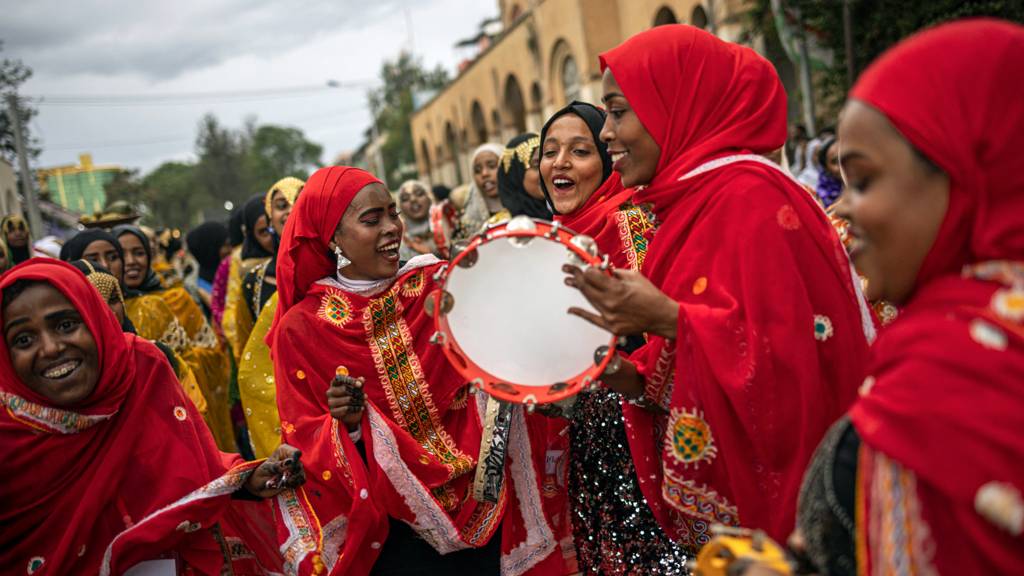
Live
Africa Live this week: 22-28 April 2024
viewing this page
Bringing you the latest news from around Africa at bbc.com/africalive. This is an automated feed overnight and at the weekend.

Bringing you the latest news from around Africa at bbc.com/africalive. This is an automated feed overnight and at the weekend.
Live Reporting
All times stated are UK
Get involved
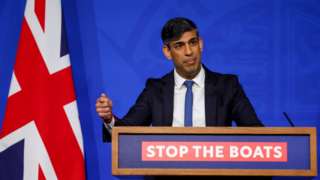

ReutersCopyright: Reuters More than 130,000 people have been displaced by the floods, authorities sayImage caption: More than 130,000 people have been displaced by the floods, authorities say 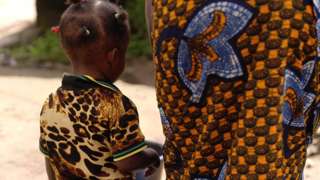

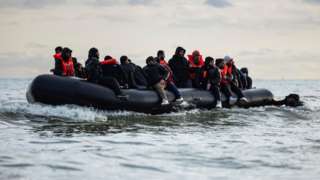
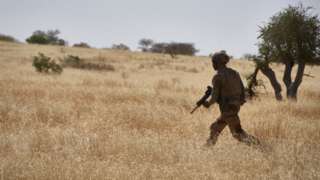
Video caption: Chris Philp says Rwanda-Congo question was 'rhetorical'Chris Philp says Rwanda-Congo question was 'rhetorical' 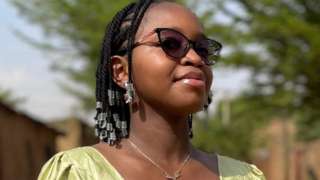
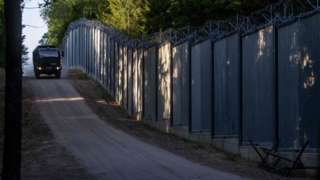
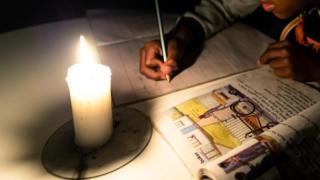
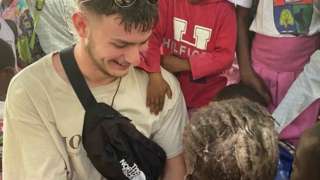
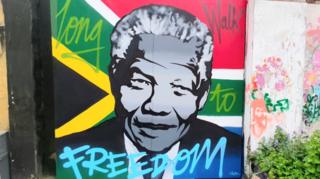
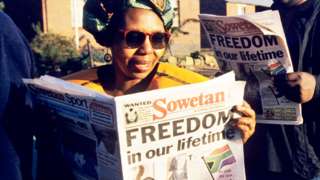
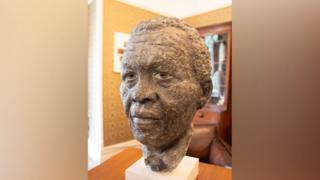

Getty ImagesCopyright: Getty Images 
AFPCopyright: AFP Ayra Starr is currently one of Afrobeats' biggest starsImage caption: Ayra Starr is currently one of Afrobeats' biggest stars 


MVLCOLMCopyright: MVLCOLM The Yaba Buluku Boyz hope to replicate the success of their wildly successful debutImage caption: The Yaba Buluku Boyz hope to replicate the success of their wildly successful debut - Success allows me to explore my African roots, Akon says
- Angélique Kidjo on being hangry and Africa's tsunami of talent
- Cameroonian singer Mr Leo on finding the 'power of our voice'

BBC Africa DailyCopyright: BBC Africa Daily Lourens Groenewald used to work for South Africa's notorious apartheid-era police forceImage caption: Lourens Groenewald used to work for South Africa's notorious apartheid-era police force - Listen to the full Africa Daily podcast here
Latest PostWhat is the UK's plan to send asylum seekers to Rwanda?
The UK government has passed new legislation to let it send some asylum seekers to Rwanda.
Read moreThis page is now closed.
For the latest updates, go to bbc.com/africalive
Kenya delays school reopening as flood death toll rises
The Kenyan government has postponed the reopening of schools by a week due to the ongoing floods that have killed more than 80 people so far.
Data shows schools across the country have been adversely affected by the floods, Education Minister Ezekiel Machogu said in a statement late on Sunday.
"The devastating effects of the rains in some of the schools are so severe that it will be imprudent to risk the lives of learners and staff before water-tight measures are put in place," the minister added.
All schools, which were scheduled to open for the second term on 29 April, will now open on 6 May.
Some schools are hosting people who have been displaced by the floods.
As of Saturday, the confirmed death toll from floods had risen to 83 after 13 more bodies were recovered in different parts of the country. The death toll is likely to increase as the rains continue to pound the country.
More than 130,000 people have been displaced by the floods, the authorities said, with dozens others reported missing.
Kenya and other countries in East Africa have been affected by severe downpours in recent weeks.
Nearly 100,000 people have been displaced in Burundi, while at least 150 people have died in Tanzania.
A president declared an emergency over rape. What happened next?
By Tyson Conteh & Tamasin Ford
BBC Africa Eye, Makeni & London
Despite Sierra Leone declaring sexual violence a national emergency, perpetrators are rarely punished.
Read moreRwanda flight detentions to begin within weeks
The Home Office says it is in final phase of implementing the policy, with reports detentions will begin on Monday.
Read moreIrish government wants to return asylum seekers to UK
Taoiseach asks justice minister to bring forward legislation so asylum seekers can be returned to the UK.
Read moreBurkina Faso rejects accusation of villagers' massacre
By Alex Binley
BBC News
Human Rights Watch says at least 56 children were killed by soldiers in Soro village.
Read moreChris Philp says Rwanda-Congo question was 'rhetorical'
Video content
Why ice costs more than bread in Mali
By Priya Sippy
BBC News
People are grappling with power cuts as well as extreme heat blamed on human-induced climate change.
Read morePoland denies 'pushback' of pregnant Eritrean woman
By Lipika Pelham
BBC News
Activists say the woman gave birth alone in a forested area at the border with Belarus.
Read morePower restored to Sierra Leone as minister quits
Most of the electricity in the capital is supplied by a Turkish ship floating off the country’s coast.
Read moreClimber, 21, fundraising for water tower in Africa
By Alexandra Bassingham
BBC News, West of England
Ben Wollen climbed the height of Mount Everest in 72 hours on an indoor wall.
Read moreNelson Mandela mural unveiled at freedom celebration
The mural will be unveiled as part of a day of celebrations marking 30 years of South African democracy.
Read moreHas South Africa's 'get-out-of-jail' vote lived up to the hype?
Thirty years after Nelson Mandela's election and apartheid's end, South Africans reflect on democracy.
Read moreMandela's daughter thanks college for sculpture
Makaziwe Mandela-Amuah hopes students at Cambridge will be inspired to make ‘a better world’.
Read moreScroll down for Friday's stories
We'll be back on Monday morning
That's all from the BBC Africa Live team for now. To keep up with news from the continent, visit the BBC Africa webpage.
And if audio is your thing, have a listen to the BBC's Focus on Africa and Africa Daily podcasts.
A reminder of Friday's wise words:
Click here to send us your African proverbs.
And we leave you with this photo of children at Friday's Earth Day marathon in Cairo, Egypt.
Ayra Starr: I won't reply to Chris Brown tour criticism
BBC Focus on Africa podcast
Nigerian Afrobeats sensation Ayra Starr has said she is "prepared" for any criticism over her decision to open for US musician Chris Brown on his upcoming US tour.
Chris Brown's violent assault on his then-girlfriend Rihanna in 2009 became one of the biggest news stories of that year.
Brown received five years' probation and a community service order for the assault.
When asked if she is aware that she may be criticised for touring with Brown because of said assault, Starr told the BBC's Focus on Africa podcast: "I'm prepared, I'm ready... I won't respond, I'll let people do their thing and I'm just going to work."
"Rihanna is my queen but I try to, like, separate my work".
Starr, who has rapidly become one of Africa's most popular musicians, said Rihanna is her "number one" and she would like to collaborate with the Barbados-born icon "by God's grace".
Starr recently finished recording her second album, The Year I Turned 21.
Listen to the full Focus on Africa episode here.
Burkina Faso suspends BBC over HRW massacre report
By Hafsa Khalil
BBC News
BBC websites and radio are blocked for two weeks over a Human Rights Watch report on alleged mass killings.
Read more'Burna Boy collab led to me buying a house for my mum'
DJ Edu
Presenter of This Is Africa on BBC World Service
When Mozambican DJ and super-producer Tarico came up with a particularly energetic beat one day, he couldn’t have predicted how it would change his life and that of his two friends.
One of those friends, songwriter and vocalist Nelson Tivane, came up with the lyric "Yaba Buluku", inspired by the sound of coins jangling in a pocket
The other friend, Preck, belted out that lyric with his gravelly, powerful voice. It was an instant hit.
"After we concluded the song we went to a rural zone and we put a car with a big sound there, and we connected the song on the car and we saw many people dancing and ask ‘who is the owner of this song?’ Then we knew this song was going to be big!"Tarico recalls, chuckling.
None other than the African Giant, Burna Boy, realised the strength of Yaba Buluku and jumped on the remix, a move which had a massive impact on Tarico, Tivane and Preck.
"We were travelling all over Africa. Too many big artists were asking us for features. People started to know our face outside of Mozambique. We became internationals," says Nelson.
"And money! I bought a car, land and a house for my mother," adds Preck.
Now calling themselves Yaba Buluku Boyz, the trio dropped their first album, Donsa, on Friday.
Like the original hit, it is high-energy, danceable amapiano, and features big African names including Ghana’s dancehall king Shatta Wale, Timaya from Nigeria and Harmonize from Tanzania.
"Music for us is coming out naturally, it’s an organic thing," says Tivane,
"When Tarico is done with the beat, he shows the boys and we start to exchange ideas. When we get to the studio, it is magical, we feel the energy. I love all the songs on the album."
To hear the Yaba Buluku Boyz in conversation listen to This is Africa on BBC World Service radio and partner stations across Africa, and online here.
Read more about music from across Africa:
Ex-apartheid era police officer: We were basically brainwashed
Mpho Lakaje
BBC Africa Daily
A former police officer who helped suppress dissent during South Africa's apartheid era told the BBC youngsters like him were "basically brainwashed".
Lourens Groenewald spoke to the BBC's Africa Daily podcast ahead of the 30th anniversary of the fall apartheid, which takes place this Saturday.
Racial segregation was formalised by the National Party when it took over in 1948, introducing a variety of laws that made the black population second-class citizens.
But over the years, there was fierce resistance to the regime. Thousands of dissenters died, while leading political activists like Nelson Mandela and Robert Sobukwe were incarcerated.
Explaining why he joined the notorious police force, Mr Groenewald said: "We were young people, teenagers. We were basically brainwashed concerning racism, being a patriot for your nation and your people. That’s what we believed in,"
Sandile Swana, an activist operating in the township of Soweto, spoke about the views he himself held during those years: "My feeling towards white South Africans were that they were the principal obstacle that had to be removed on my path to self-realisation."
Apartheid officially came to an end when millions of people voted in the country’s very first democratic election on the 27 April 1994. While Mr Swana was initially excited about freedom, he is now disillusioned. "My children face terrible odds. There’s absolutely nothing [jobs-wise] for graduates."